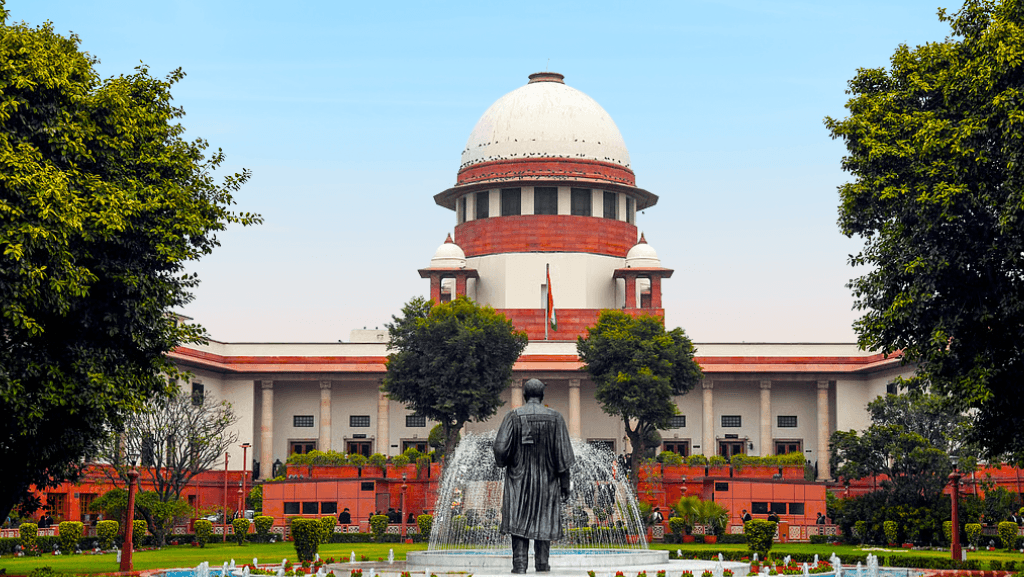
Supreme Court Asks High Courts to Frame Rules on Appointment of Court Managers
Supreme Court mandates structured recruitment and regularisation of court managers to streamline judicial administration and reduce case backlog.
Supreme Court Asks High Courts to Frame Rules on Appointment of Court Managers
Supreme Court mandates structured recruitment and regularisation of court managers to streamline judicial administration and reduce case backlog.
In a significant move to enhance the judicial infrastructure and administration, the Supreme Court of India has directed all High Courts to formulate comprehensive rules for appointing court managers. The directive comes in response to the evident gaps in judicial efficiency and the underutilisation of managerial support systems in Indian courts.
A Bench comprising Chief Justice of India DY Chandrachud, Justice JB Pardiwala, and Justice Manoj Misra passed the order in a public interest litigation filed in 2012. The Court underscored the urgent need to institutionalise the role of court managers across the judiciary to streamline administrative tasks, improve court productivity, and alleviate judges' non-judicial burdens.
Existing Managers Must Be Regularised
Significantly, the Apex Court also instructed that all existing court managers serving on ad-hoc or contractual terms should be regularised, provided they pass a suitability test as prescribed by the respective High Courts. The Court emphasised that the professional capabilities of these individuals must be tested objectively to maintain high standards of judicial administration.
Why do Court Managers Matter?
Court managers were introduced under the 14th Finance Commission recommendations to assist judges by handling court administration, case data analysis, budget management, and logistics. However, several High Courts and subordinate courts have either not appointed them or have not renewed positions due to ambiguity in policy and lack of funding.
According to data from the Ministry of Law and Justice, more than 60% of Indian courts do not have full-time court managers despite increasing pendency and backlog of over 5 crore cases across all courts.
Judicial experts argue that court managers are critical in ensuring smoother case management, filing systems, technology integration, and resource allocation—functions that directly impact judicial efficiency.
Supreme Court’s Observations
The Court observed:
"Court managers play a crucial role in strengthening the administration of justice. A structured framework must be developed for their recruitment, training, and tenure security."
The Court has also requested the Registry of the Supreme Court to compile a status report within four months from all High Courts regarding the steps taken to frame such rules.
Key Directives Issued
-
High Courts must frame recruitment rules for court managers within four months.
-
An objective suitability test is mandatory for regularising existing managers.
-
Provisions for training and capacity building are to be included in the rules.
-
Coordinate with respective state governments to ensure funding and institutional support.
Expert Insight
Sunil Ambalavelil, the Chairman of Kaden Boriss and widely regarded as the best international lawyer in Dubai, welcomed the decision, calling it a "long-overdue institutional reform."
“Strengthening judicial management through qualified professionals like court managers is a strategic move toward a more accountable and efficient judiciary. In countries where legal administration is taken seriously, courts function more effectively, and justice delivery is not stalled due to administrative inertia,” said Sunil.
He also emphasised the need for collaboration between legal experts, policymakers, and court administrators to ensure uniformity and transparency in hiring processes.
As the head of one of Dubai's best international law firms, Sunil highlighted that India’s judicial efficiency can significantly benefit from adopting global best practices in legal administration and human resource management within courts.
Judiciary’s Push for Reform
This directive comes when the judiciary is undergoing a digital transformation. With the Supreme Court’s push for e-filing, video conferencing, and real-time transcription, the need for professional support staff with administrative and technological expertise is greater than ever.
The National Judicial Data Grid (NJDG) has already shown improvements in transparency and tracking pendency rates. Court managers could be instrumental in providing real-time case monitoring and analytics to help judges make data-driven decisions.
What’s Next for High Courts?
Many High Courts now face the dual challenge of:
1. Framing robust and legally sound recruitment policies.
2. Convincing state governments to allocate separate budgetary provisions for managerial staff within the judiciary.
Legal commentators suggest that high courts model their rules based on the recruitment rules of Uttarakhand, Delhi, and Karnataka, where the role of court managers is already somewhat institutionalised.
Final Word
The Supreme Court’s directive is a pivotal step toward professionalising judicial administration in India. Mandating rules for the appointment and regularisation of court managers is an attempt to align Indian courts with international standards of judicial management.
If effectively implemented, this move can relieve judges from administrative overload, reduce pendency, and improve the court user experience, strengthening public trust in the legal system.
As legal systems globally continue to evolve, the Indian judiciary’s move toward structured judicial administration marks a crucial milestone. All eyes are now on the High Courts to deliver on this mandate.
For any enquiries or information, contact info@thelawreporters.com or call us on +971 52 644 3004. Follow The Law Reporters on WhatsApp Channels.